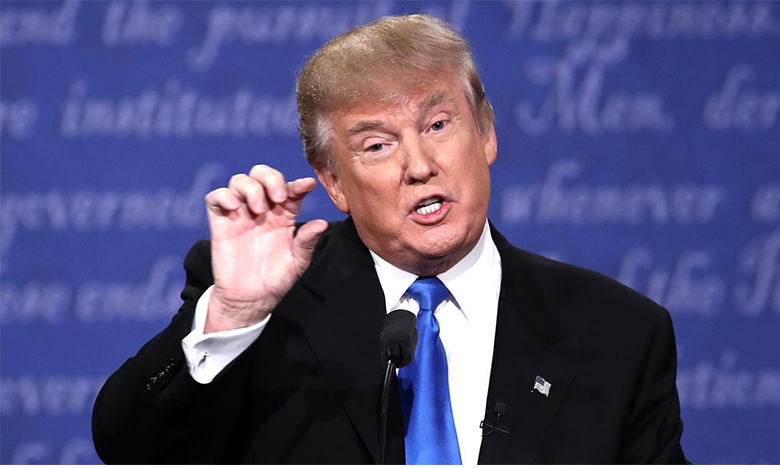A president known for stretching the limits of ethical conduct makes a bold move to pardon a close family member of federal crimes. This is not a bulletin from the future, but rather from 2001, when Bill Clinton pardoned his half brother for cocaine possession. The cleaning of Roger Clinton’s slate (he had served his time years earlier) was but a drop in the controversial flood of pardons Clinton issued at the close of his presidency, and evidence of a broad constitutional power with few checks.
The investigation into Donald Trump’s campaign contacts with Russia has now embroiled both Donald Trump Jr. and Jared Kushner, the president’s son-in-law. Pardoning family members would constitute a political earthquake — imagine the CNN coverage! — but wouldn’t be unprecedented. Now, if Trump really wanted to go for broke, he could pardon himself for obstruction of justice or whatever else arises from the Russia probe. It would be a historic act, and one that fits with Trump’s defiant approach to legal spats throughout a larger-than-life career.
TRUMP IS NOT SHY IN THE LEGAL ARENA.
Check Article II, Section 2 of the Constitution: The president “shall have power to grant reprieves and pardons for offenses against the United States, except in cases of impeachment.” The line has been interpreted liberally over the years. Pardons can be granted before a person has even been charged with a crime. They can apply to broad categories of people, such as Vietnam War draft dodgers — who got reprieves from Gerald Ford and Jimmy Carter. Because of the large political risk, controversial pardons often come in the twilight of an administration. Clinton’s pardon of billionaire trader and fugitive tax dodger Marc Rich continues to haunt his reputation. George H.W. Bush’s December 1992 pre-emptive pardon of Caspar Weinberger for crimes related to the Iran-Contra arms-for-hostages scandal could have squelched damaging information about Bush himself from coming out at the trial.
Richard Nixon considered the unprecedented act of pardoning himself for crimes connected to Watergate, and his lawyers concluded he could, but he instead left it to Ford. While the letter of the Constitution does not prohibit a self-pardon, Michigan State University law professor Brian Kalt and others argue it would not hold up in court on the larger premise that a person cannot judge his own case.
As in most things, Trump is not shy in the legal arena. When the federal government accused him of racial discrimination in apartment buildings he owned in the 1970s, Trump did not merely defend himself but also countersued, for $100 million. (The countersuit was dismissed. Trump later settled.) In the years since, Trump has stimulated the legal economy by tangling with business partners, an ex-wife, news outlets and local governments — including a dispute with the Town of Palm Beach about his defying local ordinances to fly a massive American flag at Mar-a-Lago. A 2016 analysis by USA Today found that Trump had been involved in an eye-popping 3,500 legal actions in federal and state courts over three decades. The paper noted: “He sometimes responds to even small disputes with overwhelming legal force.”
But a presidential pardon is a much more personal act than anything the litigious mogul has done before. “In a civil lawsuit, you can always come up with some sort of nonsense to give yourself a fig leaf of justification,” says Samuel T. Morison, who served for 13 years in the federal Office of the Pardon Attorney. “He can afford to be very aggressive, and if it goes badly, he throws his lawyer under the bus. But here he wouldn’t have anybody to blame but himself. That’s the only thing that makes me think he might be more constrained.”
The move would all but invite Congress to impeach him, but as long as Republicans run the Capitol and the base sticks with Trump, that’s unlikely. The real hole lies within the law itself: The president cannot pardon himself for nonfederal crimes, and limelight-seeking prosecutors in Manhattan or elsewhere would be ready.
Kalt, who has written extensively on the idea of a self-pardon, says he always considered it a final gambit on the way out the door — like Nixon considered — because it is legally dubious and politically suicidal. But would it be so for the convention-trampling Trump?
A pardon does not necessarily require an admission of guilt by the one pardoned. Trump could spin it as the only way to properly end the “witch hunt” by a biased special counsel, Robert Mueller, and move on to cutting taxes. “He’s got a loyal base that dismisses the attacks against him as inappropriate — the whole ‘fake news’ thing,” Kalt says. “He might be able to pull it off without even being politically damaged.”
A self-pardon would be the ultimate act of defying political and legal norms, a Trumpian move if there ever was one.

